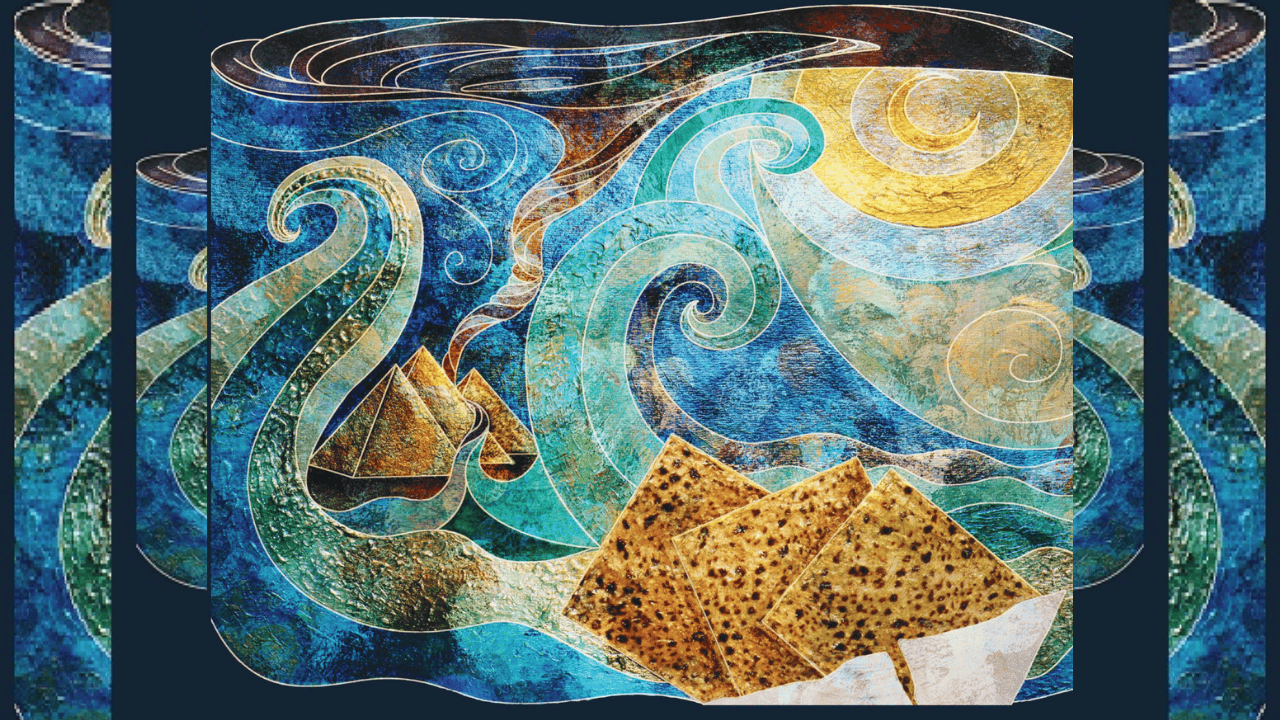“And then Jacob called to his sons and said: Gather together and I will tell you what will happen to you in the End of Days” (Genesis 49:1). Rashi, as mentioned in the previous section, quotes the Talmud and the Midrash to explain why this portion is a closed portion: Jacob wanted to reveal his prophetic vision of the End of Days to his sons, but just as he was about to speak the Shechinah left him.
When Jacob realized that the Shechinah had left him he was struck with profound worry that the Shechinah had left because his sons were not righteous or worthy enough to receive such a prophecy. The sons intuitively understood Jacob’s concern and spontaneously responded by reciting the Shema in unison: “Hear O Israel, God our God [Hashem Elokeinu], God is one.” Jacob was deeply relieved and convinced that his sons were in fact unified and worthy and there must have been another reason for the Shechinah leaving him. Therefore, he answered in turn: “Blessed is the name of His glorious kingdom for all eternity.”
Rashi explains that Jacob had also recited the Shema at another crucial point in his life, when he first saw Joseph again after a twentytwo year separation. Joseph cried on Jacob’s shoulder, while Jacob recited the Shema (Rashi on Genesis 46:30). In that case Jacob’s recitation of the Shema was a declaration of his faith that all he had worked for would come to fruition. The nation of Israel would arise and proclaim for all time the oneness of God, for his family was intact again. When the sons recite the Shema at Jacob’s deathbed they too are declaring their belief in their father’s lifework and committing themselves to the family mission. While they appear to have been familiar with the Shema, Jacob’s spontaneous declaration of “Blessed is the name of His glorious kingdom for all eternity” was, according to tradition, newly coined by Jacob to express his overwhelming gratitude to God.
Rebbe Natan, Rebbe Nachman of Breslov’s main disciple, notes that both the Shema and the expression, “Blessed is the name of His glorious kingdom for all eternity,” contain six words in Hebrew. Thus, Jacob and his sons together recited twelve words, corresponding exactly to the number of Jacob’s sons and to the number of the future tribes of Israel. Together, Shema and “Blessed is the name” are comprised of forty-nine letters, corresponding exactly to the number of letters in the names of the twelve tribes!!
The forty-nine letters of the tribes’ names were inscribed on the two stones the High Priest wore on his shoulders, as well as on the breastplate he wore opposite his heart. Symbolically, the High Priest carried on his shoulders and upon his heart the awareness of his awesome responsibility and the love for the entire Jewish people. Following the destruction of the Temple, the Sages structured the daily prayers to parallel the Divine service performed in the Temple. Thus it is now incumbent on all Jews to perform the role of the High Priest, carrying the responsibility for all Israel on their shoulders and within their hearts. (See “The Tabernacle, the Temple, and the Synagogue” in the portion of Terumah and “The Holy Garments: A Message of Oneness” in the portion of Tetzaveh.)
Having established the nature of this Torah portion as “closed,” an additional connection between the Shema and Vayechi becomes apparent. When we recite the Shema during the Morning and Evening Services, we customarily close our eyes and cover them with our hand. Why do we do this? Rabbi Shlomo Carlebach taught that sometimes to see clearly we need to close our eyes, for that which is below the surface can only be seen by the inner eye of the soul. This portion too can only be truly understood when we close our eyes and see with the inner eye of the soul, for it touches on matters relating to the End of Days.







